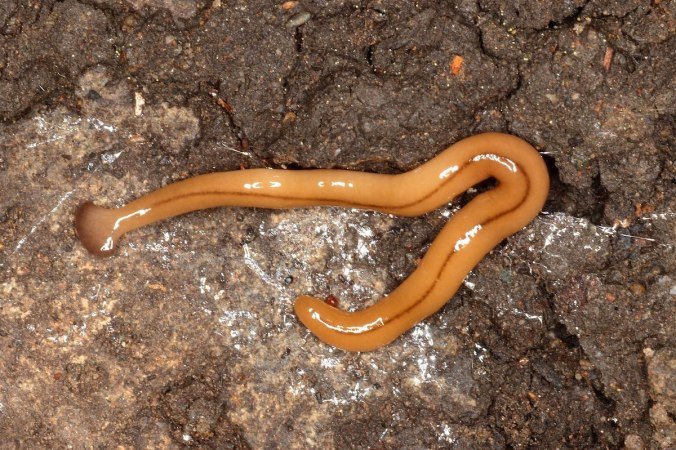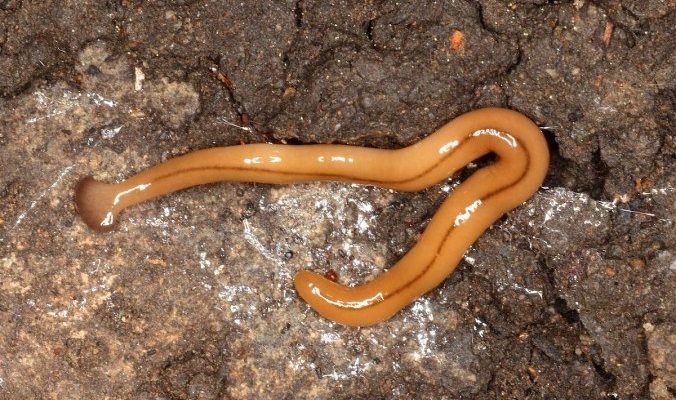
When it comes to managing these little intruders, you can consider different approaches that work naturally with nature. You don’t need to plunge into drastic measures like harsh pesticides; instead, we’re focusing on natural methods that help maintain a healthy balance. So, grab a cup of your favorite brew, and let’s dive into how you can create effective plots to reduce hammerhead worm numbers.
Understanding Hammerhead Worms: The Problem in Your Garden
You might be wondering, “What’s the big deal about these hammerhead worms?” Well, for starters, they’re voracious predators. They feast on earthworms, which play a crucial role in aerating the soil and enhancing its fertility. A garden overrun by these worms can quickly turn from a lush paradise to a barren plot.
Hammerhead worms thrive in moist environments, especially in rich, organic matter. They often come to the surface during wet weather, making them easier to spot. But here’s the kicker: not only do they eat earthworms, but they can also produce a toxic secretion to deter predators. This means they’re not just a nuisance; they can disrupt the natural order of your garden.
The plight of the hammerhead worm raises the question: How do we take back control of our outdoor spaces without causing harm to the environment? That’s where effective natural plots come into play.
Creating a Balanced Ecosystem
One of the best ways to manage hammerhead worms is by enhancing the overall health of your garden ecosystem. Think of it like inviting a diverse crowd to a party—each guest brings something unique to the table. In your garden, beneficial insects and animals can help keep hammerhead worm numbers down.
Start by planting a variety of native plants. These plants attract beneficial insects like ladybugs and lacewings, which prey on pests. Additionally, increasing plant diversity can deter hammerhead worms, as they prefer specific conditions that are less favorable in a varied landscape.
Another tip? Rotating your garden beds is a smart move. Changing crops and planting locations each season can disrupt the life cycles of hammerhead worms, reducing their chances of establishing a foothold.
Utilizing Natural Predators
Are you a fan of biological pest control? If so, you’ll love using natural predators to manage hammerhead worms. Birds, toads, and even certain types of insects feast on these flatworms, making them excellent allies in your fight against unwanted garden guests.
Consider creating habitats that attract these predators. Birdhouses can lure in feathered friends, while muddy habitats can be perfect for toads. Even just keeping your garden a bit messy—like leaving a few logs or rocks around—can provide shelter for these helpful creatures.
You might also want to introduce nematodes—tiny roundworms that target pests. They won’t harm your plants, but they can help keep hammerhead worms in check.
Companion Planting: Allies Against Hammerhead Worms
Another fantastic method to consider is **companion planting**. This gardening technique involves planting different crops in proximity for mutual benefit. Some plants repel pests, while others attract beneficial insects. It’s like having a team of superheroes working together in your garden.
For example, marigolds are great companions. They not only add a splash of color but can also deter various garden pests. They release a scent that many unwanted creatures, including hammerhead worms, dislike. Additionally, planting garlic or onion nearby may create an unfriendly environment for these worms.
When you think of your garden layout, consider how companion plants can create a united front. By adding these natural allies, you’re building a fortress against hammerhead worm invasions without losing the beauty of your garden.
Enhancing Soil Health
Soil health is crucial in any garden, and it can play a significant role in managing hammerhead worms. Healthy soil can support a wider array of beneficial organisms, creating a balanced ecosystem that naturally discourages pests.
Start by adding organic matter like compost or well-rotted manure. This not only enriches the soil but also helps it retain moisture—something hammerhead worms thrive on.
Aim for a balanced pH level in your soil too. Regular testing can uncover issues that might create a favorable environment for these critters. If your soil is too acidic or alkaline, it can lead to a decrease in the good organisms that help keep worm populations in check.
Another thing to look out for is drainage. If your garden holds too much water, it can become a breeding ground for hammerhead worms. Work on your garden’s layout to ensure proper drainage, perhaps by creating raised beds or adding sand to improve soil structure.
Homemade Remedies to Deter Hammerhead Worms
Sometimes, a little DIY can go a long way! There are several homemade remedies that can help reduce hammerhead worm populations effectively.
One popular method is using a salt or vinegar solution. When mixed with water, these can be sprayed directly onto the worms. Just a caution here: while this method can be effective, you want to be careful not to harm your precious plants, so use it sparingly.
Another option is to create a diatomaceous earth barrier around your plants. This natural powder is made from fossilized algae, and it can deter unwanted pests, including hammerhead worms. It works by dehydrating the worms when they come into contact with it.
You might even consider using essential oils, like peppermint or tea tree oil. Adding a few drops to your watering can may help repel these flatworms while leaving your garden smelling great!
Regular Monitoring and Maintenance
Lastly, regular monitoring of your garden is key. It’s kind of like keeping an eye on your favorite houseplant—you want it to thrive and be free from pests.
Make it a habit to check under leaves, around plant bases, and within soil crevices for any signs of hammerhead worms. Early detection can be crucial in managing them before they become a bigger problem.
Maintaining your garden doesn’t stop at monitoring; regular maintenance is just as important. Keep your plants healthy through appropriate watering, pruning, and fertilizing. A well-cared-for garden is less likely to attract pests, including those pesky hammerhead worms.
By incorporating these practices, you’re not just reducing hammerhead worm numbers, but also cultivating a thriving, vibrant garden.
In conclusion, dealing with hammerhead worms doesn’t have to be a daunting task. By employing a combination of natural plots and strategies, you can manage their numbers effectively while promoting a healthy garden ecosystem. Remember, it’s all about balance and working with nature, not against it. With a little patience and effort, you’ll find that you can enjoy a beautiful, flourishing garden that’s less troubled by these unusual invaders. Happy gardening!

